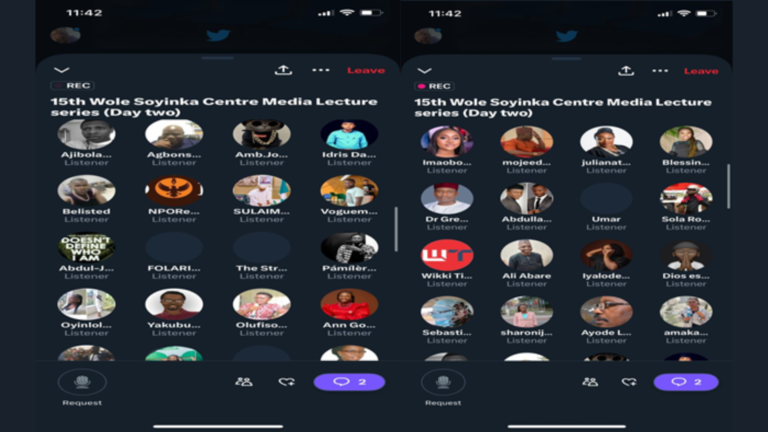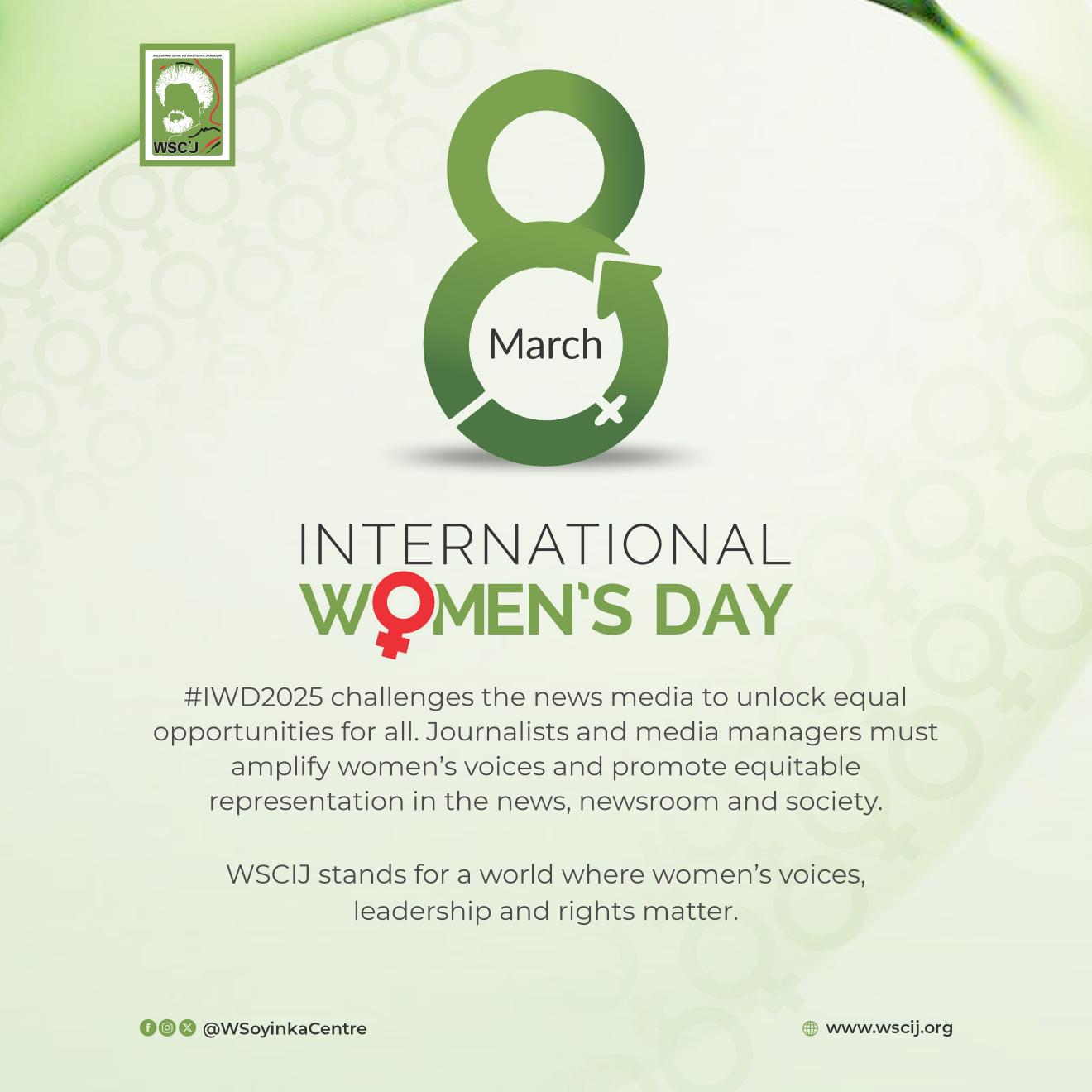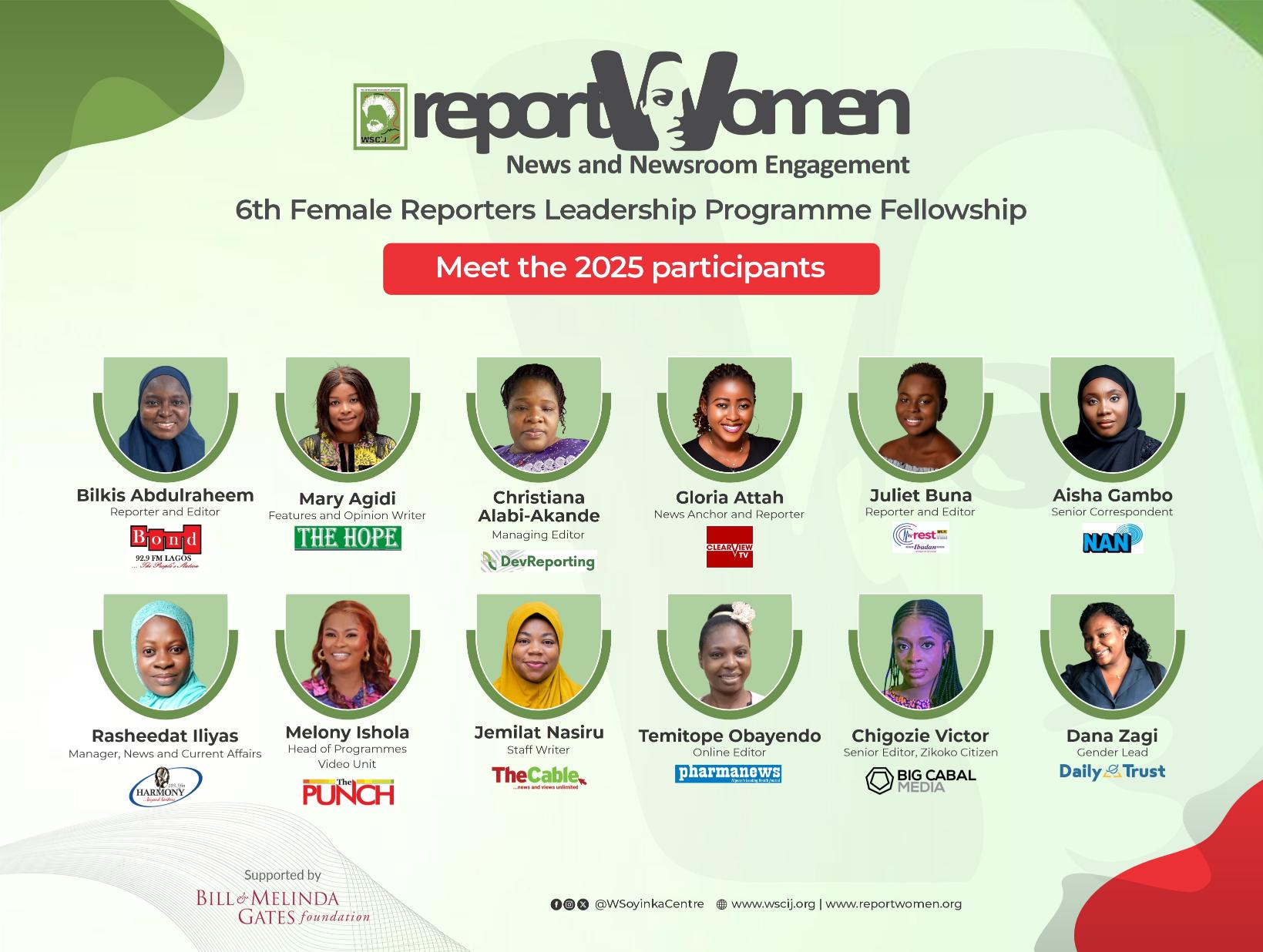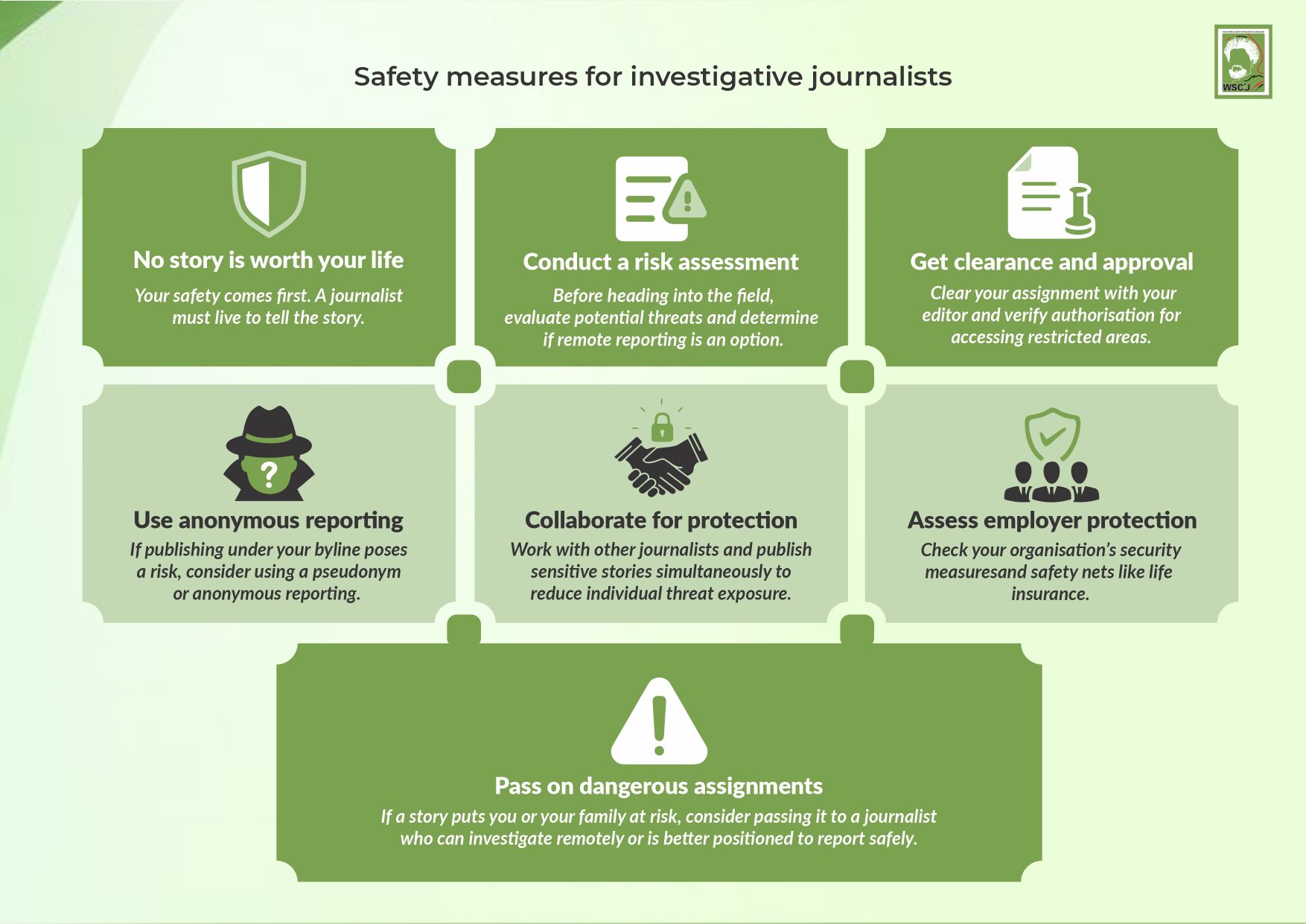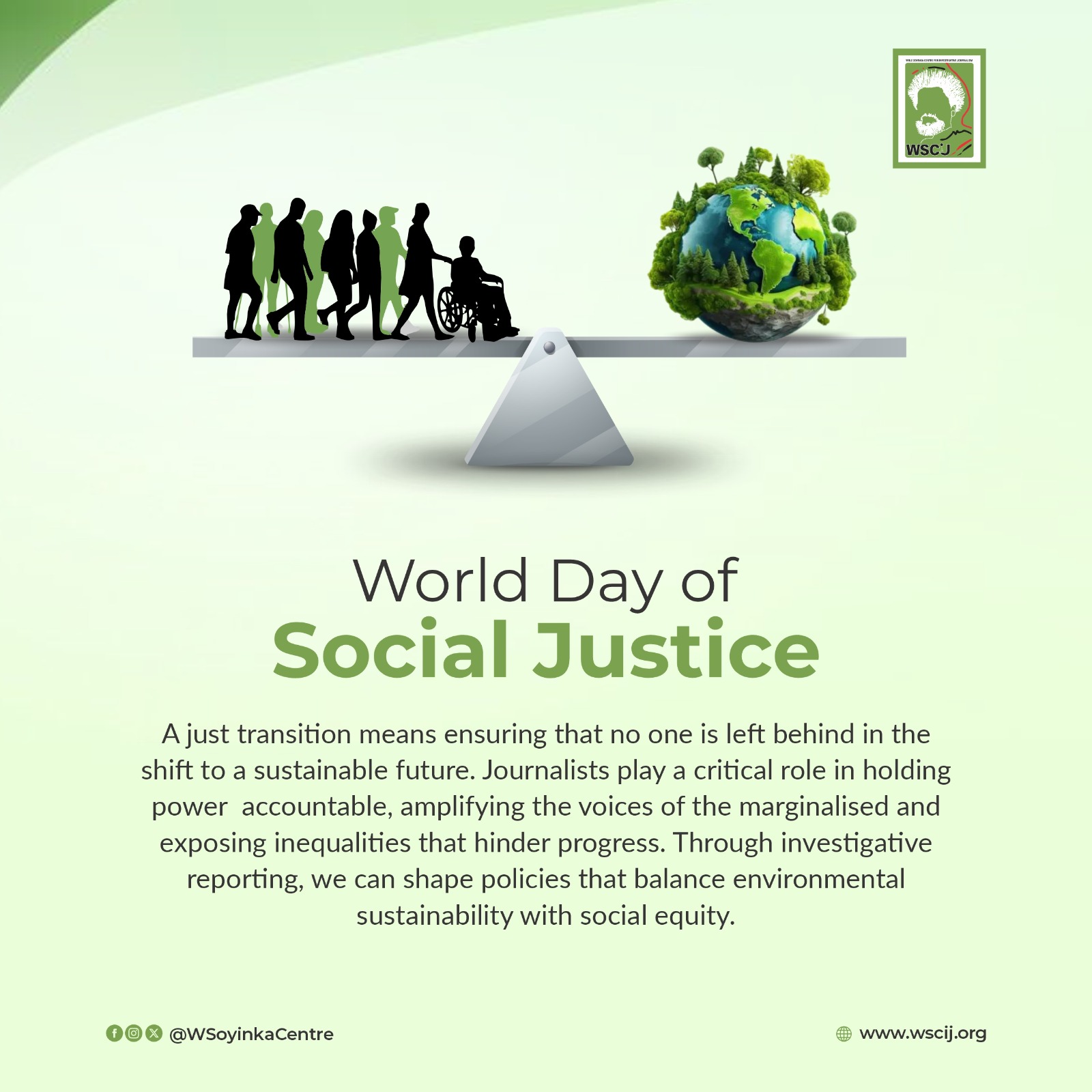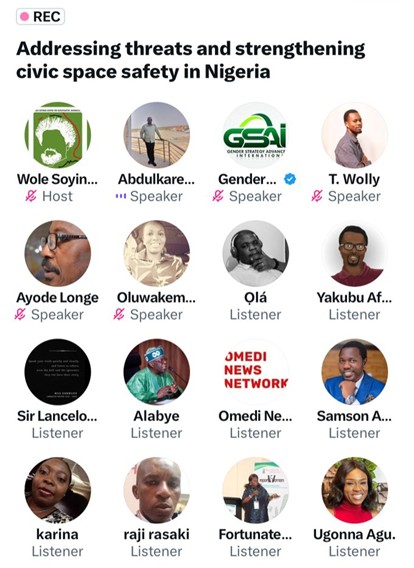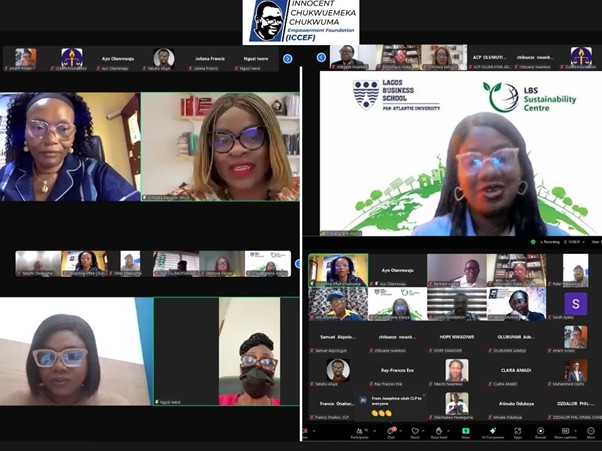Collaboration and financial independence are necessary ingredients for a resilient media capable of contributing to nation-building and holding power to account. These were views of panellists during Day Two of the 15th Wole Soyinka Centre Media Lecture Series organised by the Wole Soyinka Centre for Investigative Journalism (WSCIJ). Laying the foundation for the robust virtual discussion that featured Toun Okewale Sonaiya, Executive Director, Women Radio; Augustine Agbonsuremi, Executive Director, Progressive Impact Organization for Community Development; Subomi Plumptre, Co-founder, Volition Capital Investments Limited and Aliyu Tanko, Editor, British Broadcasting Corporation (Hausa service) as panellists, the keynote speaker, Ropo Sekoni said media is an integral architecture of democracy and a strong pillar of democratic governance alongside the executive, legislative, and judicial arms of government.
Reflecting on the past, the keynote speaker highlighted that throughout Nigeria’s history, including the colonial era, various military regimes, and the post-1999 media landscape, there has been a notable suppression of the press in comparison to its counterparts in similar environments. The former National Democratic Coalition (NADECO) member advised that freedom of speech and expression constitutionally enshrined should be at par with democracy, and the right of citizens to choose and observe or hold elected officials to account. Sekoni proposed that government should make funds available to the media just like it supports many sectors to enable it to perform its informative and educative roles.
Okewale Sonaiya on her part, believed Nigeria made significant strides in embracing democracy vis-à-vis press freedom despite intimidations and arrests by state and non-state actors. In her reaction during the event that marked WSCIJ Grand patron, Prof Wole Soyinka’s 89th birthday, she acknowledged media contributions to the success of the 2023 elections despite admitting the global peculiarities of electoral processes amidst different interests and lobby groups. The founder of the first women-centric radio station in Nigeria called for implementation of legislation to protect journalists, especially female journalists. Okewale Sonaiya passionately called for women’s inclusion in governance.
The significance of financial independence for media houses, as it contributes to their editorial autonomy was the highlight of the contribution by Plumptre. The financial advisor encouraged media organisations to capitalise on the opportunities presented by globalisation and digitalisation to expand their following across various digital platforms and generate revenue. She suggested the employment of community managers who possess the skills to develop strategic and audience-specific content aligned with the organisation’s focus and overall mission. According to her, this approach allows media owners to monetise their brands without affecting their core values and ethics.
Regarding the collaboration between the media and civil society organisations to amplify issues, Agbonsuremi of PRIMORG acknowledged a deliberate partnership between PRIMORG and media organisations over the past four years to create buzz around critical matters to drive change. He stated that government will continue to ignore reports from journalists without amplification. He lauded Socio-Economic Rights and Accountability Project (SERAP), Premium Times, WSCIJ, and other organisations with templates and training to support media houses and journalists. The former African Independent Television (AIT) reporter demanded more opportunities for journalists to enable them to function better. In his remarks, Aliyu Tanko advised niche organisations to develop contingency plans to cushion the effect of a new competitor. The BBC Hausa editor said trust and a sustainable model are crucial to the growth and sustainability of media outfits.
Reflecting on the themes explored over the past 15 editions, Motunrayo Alaka, executive director/CEO of the WSCIJ asked listens to assess how far the country had come. She said the annual conversation discusses how the news media and democracy can optimally function and make government fulfil its obligations so the country works for the most vulnerable in the society. Acknowledging the interdependent relationship between the media, democracy, and a thriving society, she said the WSCIJ is consistently committed to offering platforms for media engagement. Alaka also paid tribute to late Prof. Lai Oso, who died in an auto crash on Saturday, 25 June 2023. She described him as an ally of the WSCIJ, leader and a passionate servant of Nigeria, Africa, and the world.
The event had members of the media, industry experts, private sector leaders, government ministries and agencies, pressure groups, policymakers, students, and other stakeholders in civil society in attendance. You can also listen to Day One here.

